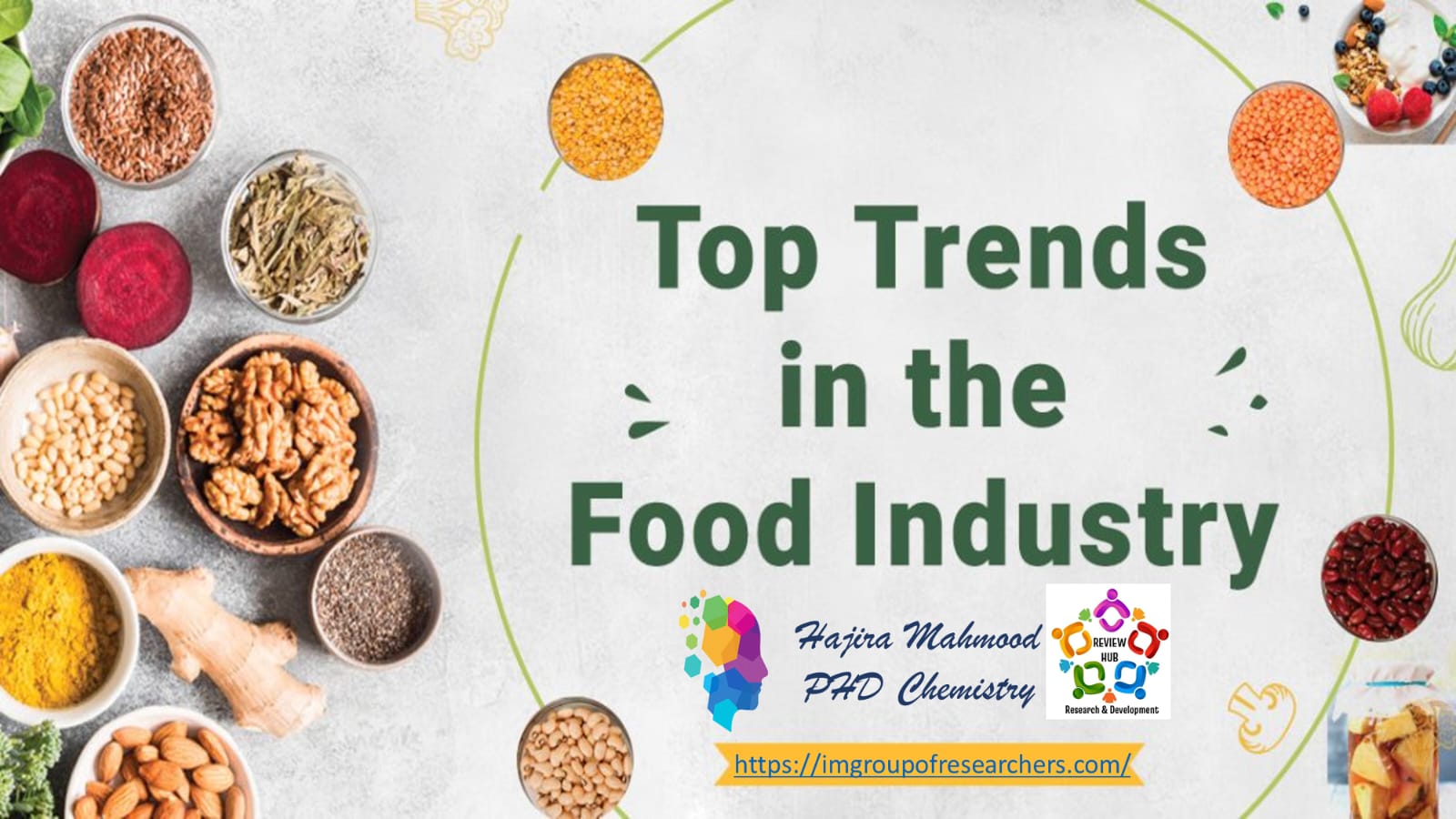Recent trends to meet the changing demands of the global food industry. The field of agricultural and food chemistry is constantly evolving to address emerging challenges and meet the changing demands of the global food industry.
Author: Hajira Mahmood
Here are some recent trends in agricultural and food chemistry:
1. Sustainable Agriculture
There is a growing emphasis on sustainable agricultural practices that minimize environmental impact and promote resource conservation. This includes the development of eco-friendly pesticides, precision agriculture techniques, soil health management, and the use of renewable energy sources.
2. Food Safety and Quality Assurance
Ensuring the safety and quality of food products is a significant concern. Advanced analytical techniques and technologies are being developed to detect contaminants, adulterants, and foodborne pathogens. This includes the use of rapid testing methods, molecular diagnostics, sensor-based technologies, and block chain systems for traceability.
3. Functional Foods and Nutraceuticals
There is increasing interest in developing functional foods that offer health benefits beyond basic nutrition. Food chemists are working on extracting bioactive compounds from natural sources and formulating them into functional food products. Nutraceuticals, such as antioxidants, probiotics, and plant-derived compounds, are gaining attention for their potential health-promoting properties.
4. Food Preservation and Packaging
Food chemists are exploring innovative methods for food preservation to extend shelf life and reduce food waste. This includes the use of natural antimicrobial agents, modified atmosphere packaging, active packaging materials, and smart packaging technologies to monitor and maintain food freshness.
5. Alternative Protein Sources
With growing concerns about sustainability and animal welfare, there is an increasing interest in alternative protein sources. Food chemists are researching and developing plant-based proteins, cultured meats, insect-based products, and other novel protein alternatives to meet the demand for sustainable protein sources.
6. Novel Food Ingredients and Processing Technologies
Food chemists are exploring new ingredients and processing techniques to enhance the nutritional profile, sensory attributes, and functionality of food products. This includes the use of novel ingredients like algae, seaweed, and edible insects, as well as the application of technologies like high-pressure processing, ultrasound, nanotechnology, and encapsulation.
7. Food Authentication and Traceability
Ensuring the authenticity and origin of food products has become crucial. Food chemists are developing advanced analytical techniques, such as DNA barcoding, isotopic analysis, and spectroscopy, to authenticate food ingredients, detect food fraud, and establish traceability throughout the supply chain.
These trends reflect the ongoing efforts in agricultural and food chemistry to address challenges related to sustainability, safety, quality, nutrition, and innovation in the food industry. By leveraging scientific advancements, food chemists contribute to the development of a safer, healthier, and more sustainable food system.
Also read: Research Ethics Lecture By Dr. Ghazala Ali Khan
Follow Us on

